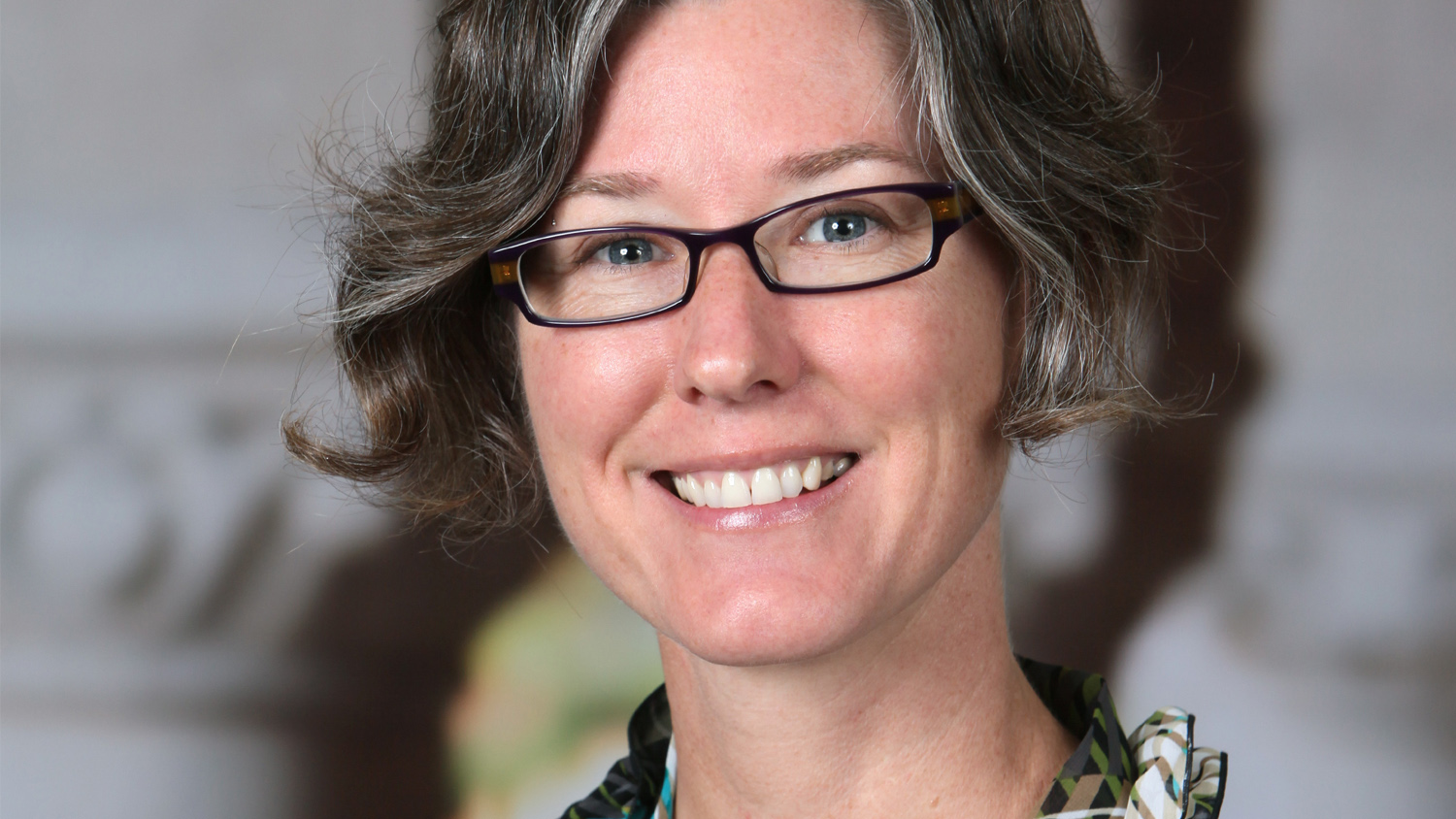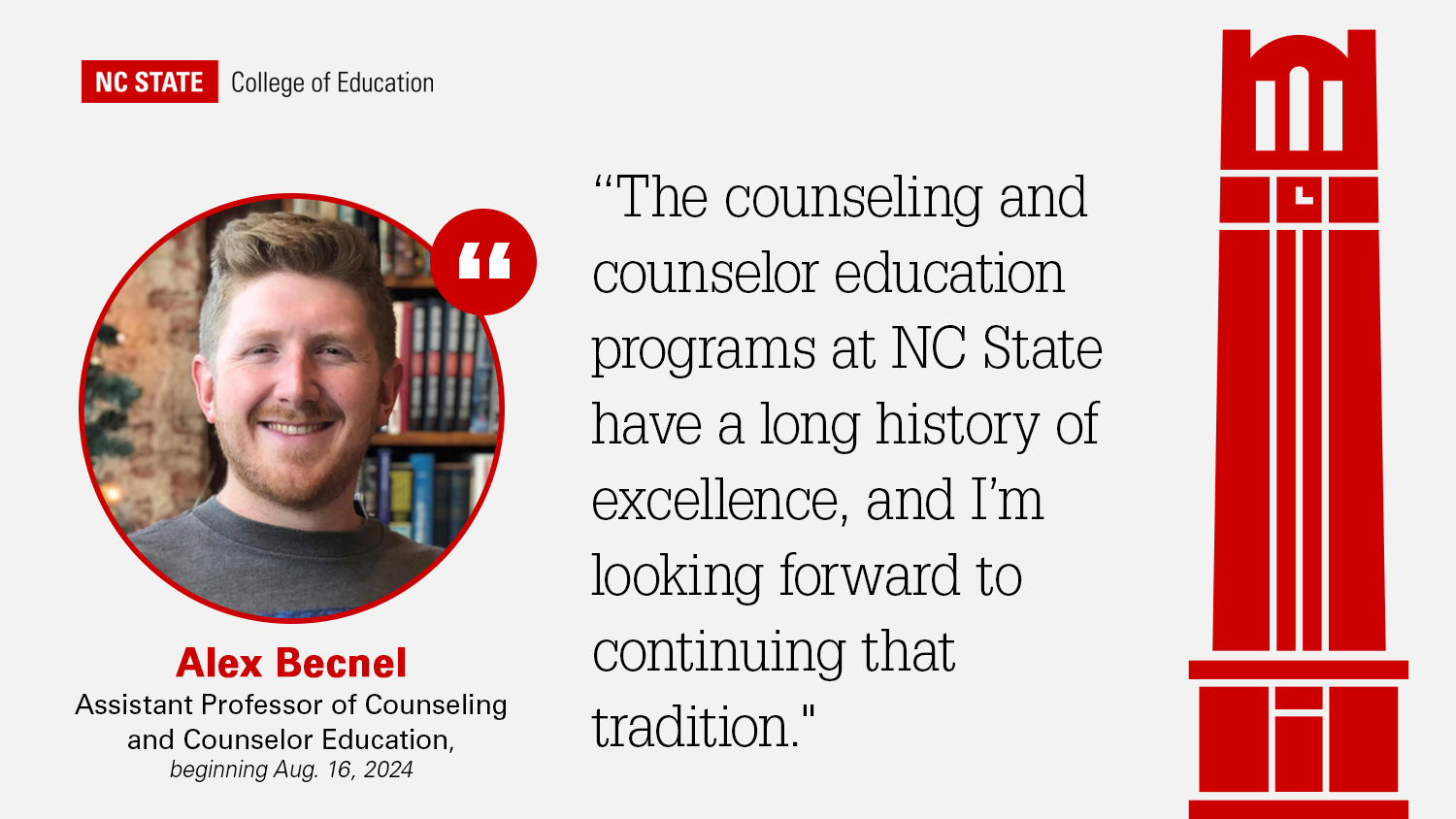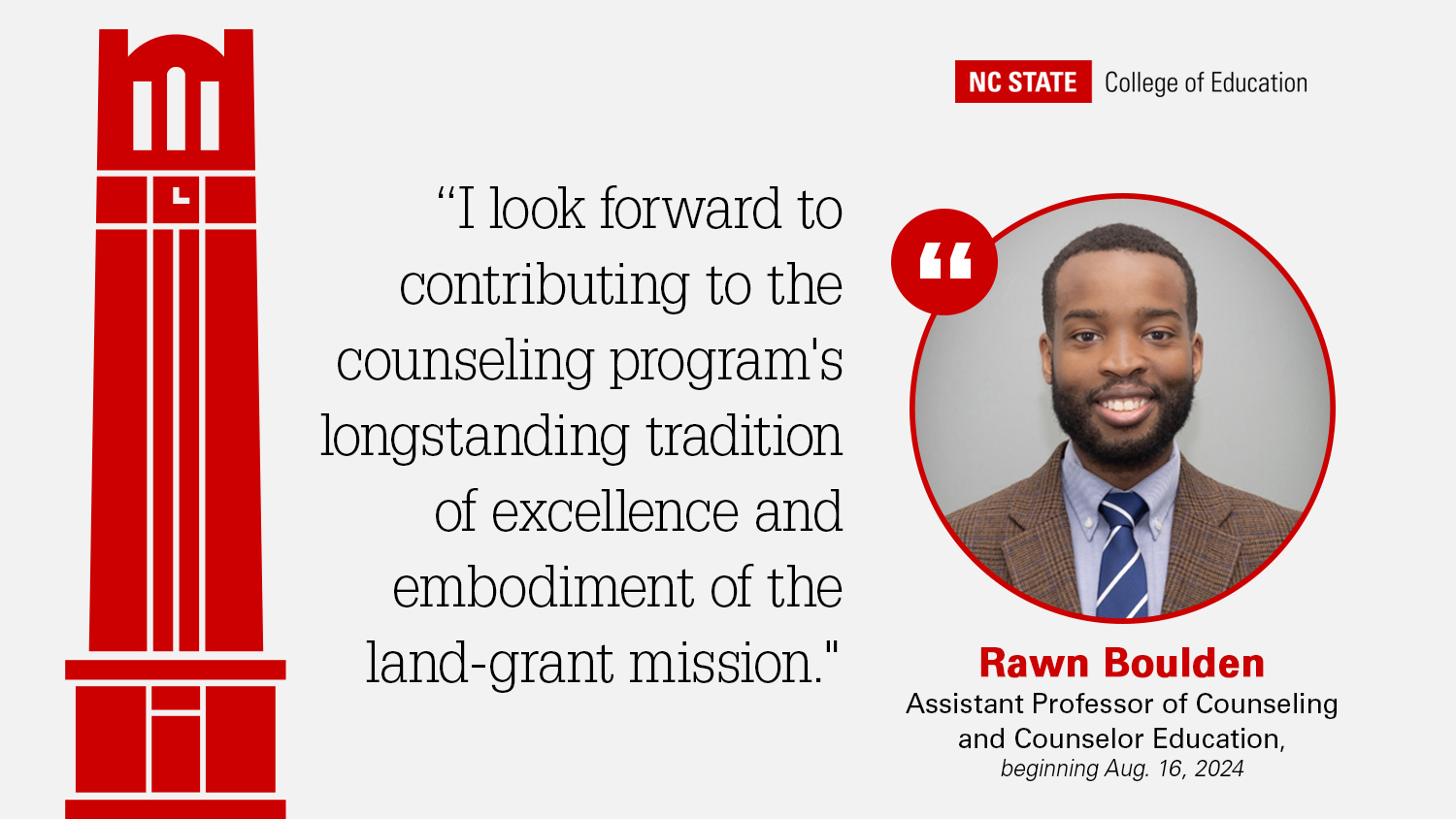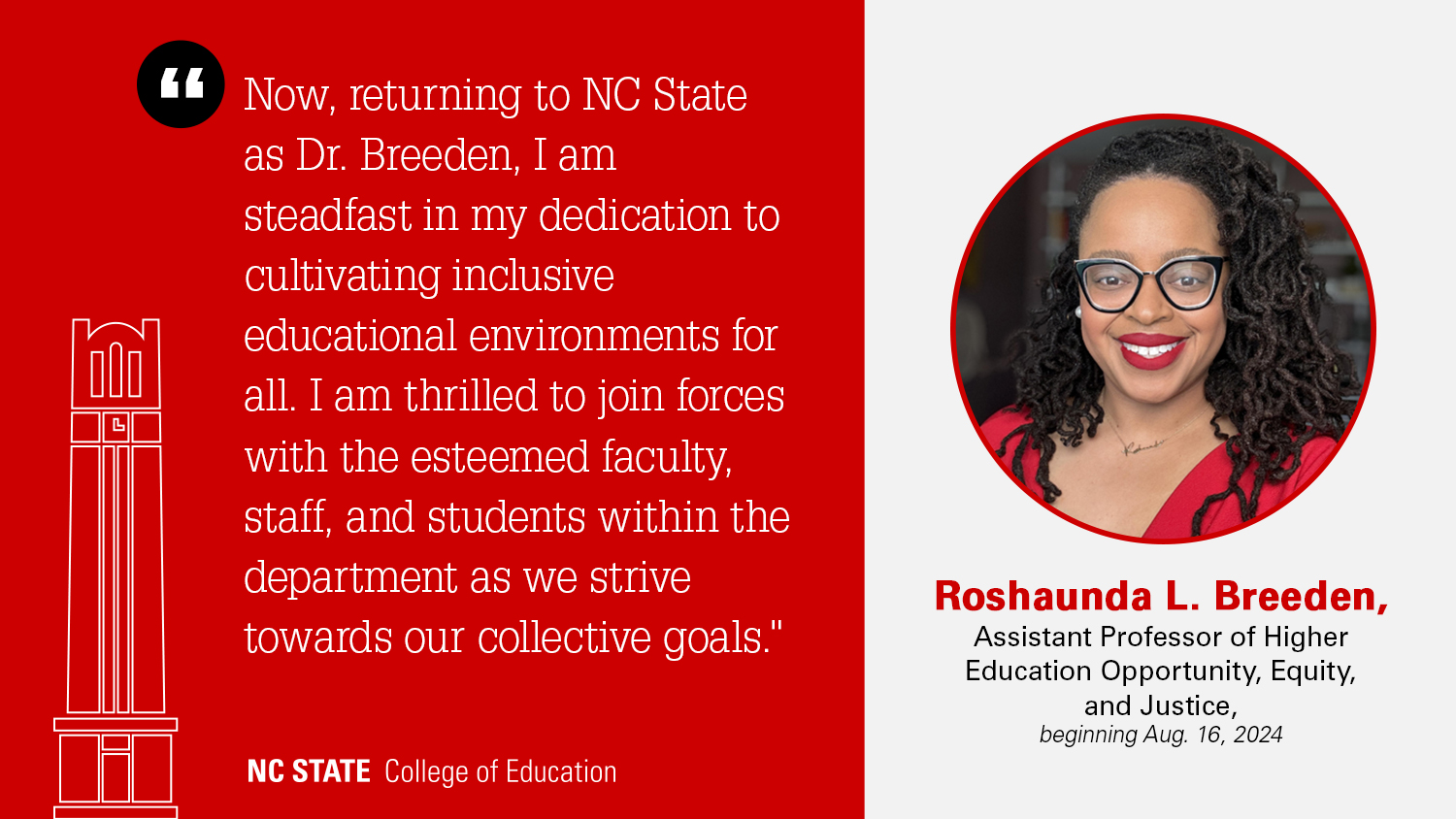Meet K.C. Busch: I Like to Think Outside the Box

“Generally, I’m interested in issues and contexts where science and society are in contact. Sometimes that contact is copacetic, and other times it may be that science and society are in tension,” says the assistant professor of STEM Education and member of the Leadership in Public Science Interdisciplinary Cluster faculty. “I find the moments of tension to be the most interesting, and that is why I’m drawn to controversial socio-scientific issues in my research (and real life).”
This is part of a series of profiles of faculty who joined the College of Education in 2017.
K.C. Busch
Education: Ph.D. in Science Education, Stanford University; Master of Science in Science Education, University of Texas; Bachelor of Science in Ecology, Iowa State University.
Experience: Postdoctoral Scholar, Stanford Center for Assessment, Learning, & Equity (SCALE); Graduate Research Assistant, Stanford University; Graduate Research Assistant, University of Texas at Austin; Climate Change Content Consultant, Dan Schwart, AAALab and GlassLab Games; Science Education Advisor, Education for Sustainability in Galapogas; Instructor, Teaching Assistant and Pre-Service Teacher Supervisor, Stanford University; National Science Foundation GK-12 Program Coordinator, University of Texas at Austin; High School Science Teacher, St. Stephen’s Episcopal School (Austin, Texas) and Liberal Arts and Science Academy (Austin, Texas); 8th Grade Science Teacher, Covington Middle School (Austin, Texas); STEP Summer Middle School Model Teacher, Columbia Middle School (Sunnyvale, California); Park Ranger, Great Basin National Park; Urban Environmental Community Developer in Cote d’Ivoire, Africa, Peace Corps; and Environmental Educator, Keewaydin Environmental Education.
Why I Chose the NC State College of Education: I was looking for a university that was being innovative and had a real mission to make a difference. Therefore, I was impressed with the Chancellor’s Faculty Excellence Program, which establishes Interdisciplinary Clusters to support faculty whose work crosses disciplines. Since my work, both my research and my teaching, has been interdisciplinary and about taking action, I believed NC State was a great fit. The College of Education is the perfect home for me, given my years of experience in science education. I’m really looking forward to working with great colleagues in the College of Education and, more widely, in the university.
Why I Chose STEM Education: Prior to attaining my master’s degree in science education from the University of Texas at Austin and my doctorate in science education from Stanford University, I was a science teacher for 12 years. Prior to that, I taught in informal contexts for two years or so. I initially had no intention of becoming an educator, however. I earned a Bachelor’s Degree in Ecology from Iowa State University with aspirations to become an environmental lawyer. I wanted my life’s work to be in protection of the environment. I changed course when I volunteered in the Peace Corps in Africa and saw the impact that education could have. I still believe in the power of education to make the world a better place.
Why I Decided to Pursue a Doctorate in Science Education: After teaching in the classroom for 12 years, I wanted to have a broader impact. I attended the University of Texas at Austin with the intention of going back into the school district as an instructional coach; however, after completing my first research project, I was hooked! I loved doing research, and so getting a Ph.D. seemed like a logical next step.
My Research Interests: Climate change is a pressing environmental problem, and the burden of its effects will be shouldered by today’s youth. However, climate change is not an issue for which youth have much concern or agency, which is often blamed on a lack of knowledge. In contrast, I focus on empowering and hopeful messages around what students can do to address this growing issue. Drawing on research from the fields of communication and environmental psychology, I have investigated the language used to teach about climate change in educational settings, analyzing the language used in text and speech. My more current research is trying to model how youth make decisions to act in pro-environmental ways in their everyday life.
What Drew Me to the Field: Generally, I’m interested in issues and contexts where science and society are in contact. Sometimes that contact is copacetic, and other times it may be that science and society are in tension. I find the moments of tension to be the most interesting, and that is why I’m drawn to controversial socio-scientific issues in my research (and real life). Issues such as climate change offer a fascinating opportunity to investigate how people make sense of science in their everyday lives.
My Teaching Philosophy: I think that people learn by doing meaningful work in an authentic context. So, I view my role as a teacher to be a facilitator, creating those types of learning experiences and providing support for my students to be both challenged and successful.
What Influenced My Teaching Philosophy: I believe that my informal teaching experiences were very influential to my formal teaching style. My first experience teaching was with a residential environmental education center in Vermont. Middle-school students would come camp with us for a week, and we would take them hiking in the woods to learn about plants, animals, and the land. The campers learned through experiences that were meaningful and powerful for them, so I viewed my task as the teacher to be to provide those types of experiences.
What I Hope My Students Learn from Me: Intellectual risk-taking. I believe that trait best encompasses how I approach my work, both my teaching and my research. I like to think outside the box, to try new things, even if there is a chance it may not work. For me, the rewards of success are more motivating than avoiding the possibility of failure. As a first-generation college student, I understand the difficulty of asserting your ideas, but I also reaped the rewards of doing so.
- Categories:


